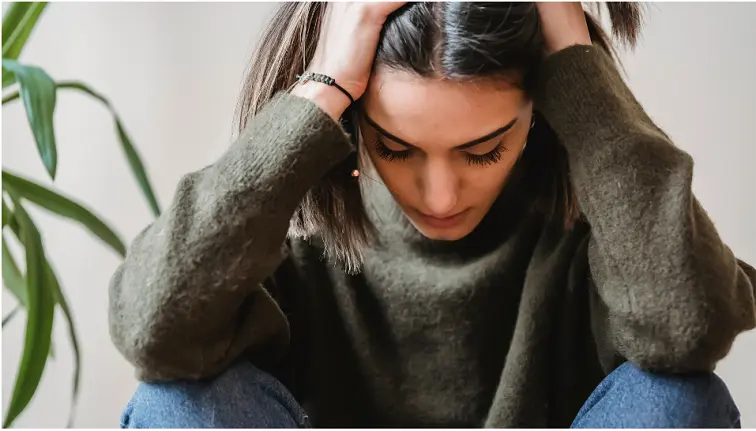During disease outbreaks, it is natural for public anxiety and fear to run high. Even though the psycho-social impact of viral outbreaks is well-researched, yet its paid little attention to, says Dr Debanjan Banerjee.
I recently heard about an overseas incident in Taiwan from one of my colleagues, where an elderly gentleman had left his house with a fear that he had contracted COVID-19 infection and would infect his family. He is yet to be found. Similar incidents of absconding or even self-harm have been happening at various places with fear about the Coronavirus infection.
The Problem Statement
With passing time, the World Health Organization (WHO) starts apprehending the COVID-19 as a ‘pandemic’, as the number of cases outside China is rising. As of date, the virus has infected 80,000 people in about 40 countries with about 2,663 deaths reported in China alone.
These statistics, however, talk little of the ‘elephant in the room’, the global panic that looms over the surface gradually, rising since the last year-end and peaking world-wide.
The truth is that a novel infectious illness with a known trajectory, but the unknown cure has traumatised crowds till the outbreak ceases and even then, the fear of re-emergence persists.
A similar scenario had happened in the past with SARS, MERS, Ebola, Swine flu and Nipah virus infections. Adding to the mass-hysteria, as always, is the plethora of viral misinformation and ‘fake news’ that we consume almost daily.
Let us analyse the psychological impact that COVID-19 has been having on the masses. This adds to the global health emergency and burdens the overall health economy.
At risk-population includes medical and laboratory staff, infection ward screening and cleaning staff, volunteers from other departments, families of those mentioned above, airport staff (especially international), frequent travellers to/from the affected countries, those in quarantine and isolation, etc.
Imagine yourself going through a scenario where daily you have to face the risk of contracting a deadly illness, irrespective of the best possible measures. Added to that is the fear of transmitting a ‘latent infection’ to your loved ones. One of my colleagues who travels regularly for work shared, “It has come to this extent now that I have stopped reading the news on the infection. Somehow I have accepted fate.”
Whereas, one of my neighbours, working at Bengaluru International Airport mentioned monitoring almost every passenger’s face with utmost intent with a constant internal debate whether he/she is carrying the infection. Many of them intend to stay separately from their families due to this fear.
Coming to the medical staff (especially those working with the affected or suspected patients) and the laboratory personnel (dealing with the numerous body samples for testing): fatigue, anxiety, irritability, burn-out, chronic stress and insomnia are the common fallouts.
One of my patients who had recently come back from Italy (where cases of COVID-19 are on the rise) while sharing his experience said, “Last few days there I had almost locked myself up in the room, half-starving. I started feeling that even breathing can infect me. At the earliest possible chance, I came back leaving my work undone, but the fear is just growing.” He was staying in Northern Lombardy, where most deaths have occurred due to COVID-19. Most of these people have got themselves tested; in fact, as a protocol, medical staff working in at-risk areas receive mandatory periodic screening. The fear, anxiety and panic, however, are beyond the test results.
In the out-patient departments locally the following are on the rise secondary to COVID-19:
– Panic disorder
– Generalised anxiety disorder and depression
– Specific phobia of travel, certain public places (like airports, malls, etc.)
– An obsessional fear of contracting the illness
– Chronic stress syndrome
– Illness anxiety
– Somatic symptom disorder (but attributed to ‘unknown’ viral infection)
– Insomnia
Added to these are the health-related side-effects of ‘faulty’ treatment (self-medication or prescribed) for COVID-19 due to ‘rumour-mongering’ and misinfodemics. It is useful to discuss these issues over social media or with friends, with a caution that it should not further snowball the ‘myths’ associated with the illness.
WHO has praised China for its swift action on quarantine and isolation to limit further spread of the virus. They need to be complemented even for the mental health care of their medical staff and those affected, while they are dealing with the outbreak.
A group led by Qiongni Chen mentions in their recent article (February 2020) published in The Lancet as to how The Institute of Mental Health, the Medical Psychology Research Centre of the Second Xiangya Hospital and The Chinese Medical and Psychological Disease Clinical Medical Research Centre rapidly responded to the mental health problems of the staff. They designed an emergency psychological intervention team with hotlines to provide round-the-clock counselling, supporting care, crisis intervention and medication as needed for the mental health.
Further, the Lancet also contains a comprehensive commentary by Yu-Tao Xiang and team (February 2020) stating the urgent need for ‘timely mental health care’ at times of the COVID-19 outbreak.
We are relatively lucky with the COVID-19 situation in our country. However, we have faced deadly outbreaks of Swine flu, Bird flu, Nipah and Dengue in the past.
The H1N1 influenza cases are on the rise as we discuss this. It is high time that besides promptly dealing with the epidemic itself, we also target the ‘dark horse’ of psychological issues.
In any biological crisis, fear, uncertainty, panic and most importantly stigmatisation act as barriers to proper interventions. The psycho-social impact of viral outbreaks is well- researched but paid little attention to.
Lessons learnt from China dealing with the COVID-19 crisis can help us plan, develop and implement mental health assessment and treatment services at times of similar situations.
To reiterate WHO, “No Health WITHOUT Mental Health”!
(The author Dr Debanjan Banerjee is a Geriatric Psychiatrist at NIMHANS, Bengaluru and also a member of First Check, an award-winning fact-checking initiative of Health Analytics Asia. )

















